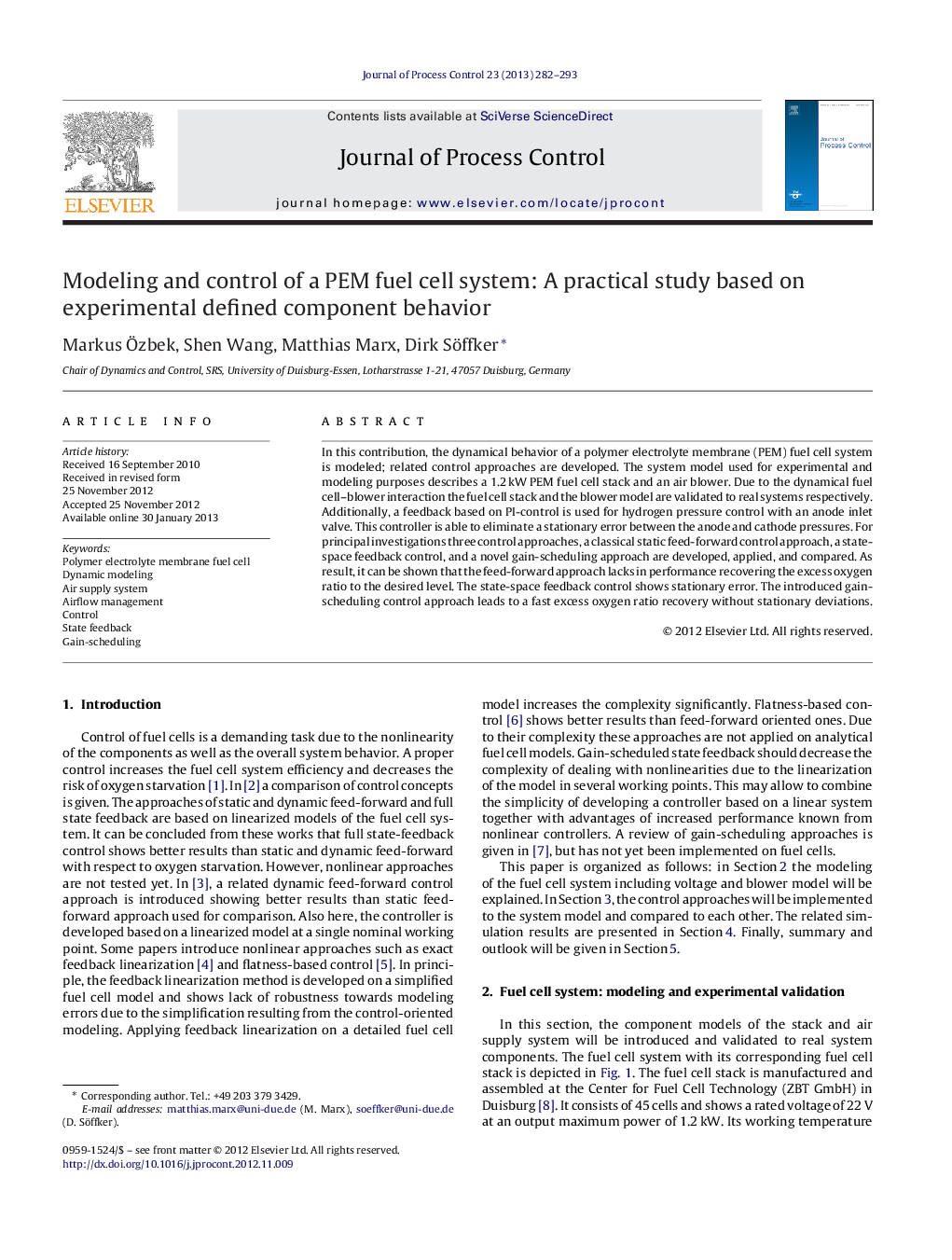| کد مقاله | کد نشریه | سال انتشار | مقاله انگلیسی | نسخه تمام متن |
|---|---|---|---|---|
| 689113 | 889591 | 2013 | 12 صفحه PDF | دانلود رایگان |

In this contribution, the dynamical behavior of a polymer electrolyte membrane (PEM) fuel cell system is modeled; related control approaches are developed. The system model used for experimental and modeling purposes describes a 1.2 kW PEM fuel cell stack and an air blower. Due to the dynamical fuel cell–blower interaction the fuel cell stack and the blower model are validated to real systems respectively. Additionally, a feedback based on PI-control is used for hydrogen pressure control with an anode inlet valve. This controller is able to eliminate a stationary error between the anode and cathode pressures. For principal investigations three control approaches, a classical static feed-forward control approach, a state-space feedback control, and a novel gain-scheduling approach are developed, applied, and compared. As result, it can be shown that the feed-forward approach lacks in performance recovering the excess oxygen ratio to the desired level. The state-space feedback control shows stationary error. The introduced gain-scheduling control approach leads to a fast excess oxygen ratio recovery without stationary deviations.
► Modeling and experimental validation of a fuel cell system is presented.
► A new hydrogen valve control approach is shown as basic improvement.
► Three controller approaches are developed and compared.
► Performance of the controllers is investigated.
► Gain scheduling shows better performance compared to “classical approaches”.
Journal: Journal of Process Control - Volume 23, Issue 3, March 2013, Pages 282–293